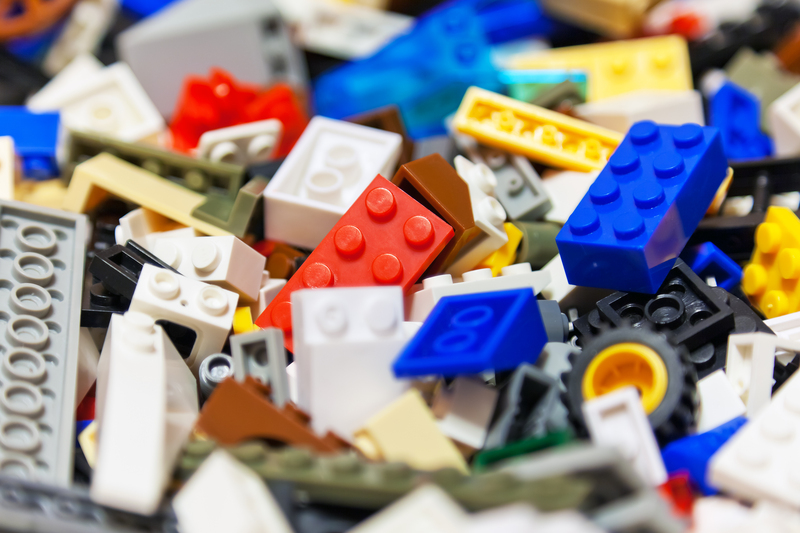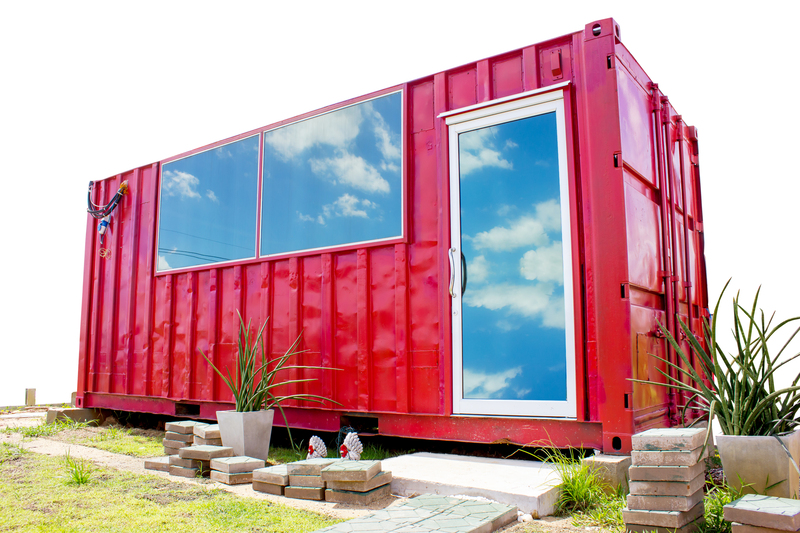Master the Art of Home Recycling with These Essential Tips
Posted on 20/06/2025
Master the Art of Home Recycling with These Essential Tips
With the increasing threat of pollution and depletion of natural resources, learning the art of effective home recycling has never been more vital. Not only does home recycling minimize the amount of waste sent to landfills, but it also conserves valuable resources and helps protect our planet for future generations. Whether you are just starting or wish to improve your current recycling habits, this guide will help you master home recycling with practical, actionable tips and insights.
The Importance of Home Recycling
Before we dive into the essential tips, let's understand why home recycling matters. Every year, millions of tons of waste end up in landfills, creating environmental challenges such as soil contamination, greenhouse gas emissions like methane, and threats to wildlife. By mastering recycling habits at home, you can:
- Reduce landfill waste and its associated pollution
- Conserve natural resources such as timber, water, and minerals
- Save energy required to manufacture new products from raw materials
- Lower your environmental footprint and foster a sustainable lifestyle
- Support a circular economy and stimulate green jobs
Now, let's explore how you can become a home recycling expert with strategic habits, tools, and knowledge.

Essential Tips to Master Home Recycling
Achieving success in recycling at home is easier than you may think. Follow these expert-backed tips to maximize your household's recycling effectiveness:
1. Know What You Can and Cannot Recycle
The first step in home recycling mastery is understanding what your local recycling provider accepts. Recycling programs vary widely by region and municipality, so it's crucial to review your city's guidelines. Generally, the common recyclables include:
- Paper products - newspapers, magazines, office paper, cardboard
- Plastic containers - water bottles, milk jugs, detergent bottles (check for #1 and #2 plastics)
- Glass containers - jars and bottles, free from food residue
- Cans - aluminum beverage cans, tin, and steel food cans
Items that should not go in your recycling bin:
- Plastic bags and film (use store drop-off programs instead)
- Food-contaminated materials (pizza boxes, greasy containers)
- Styrofoam (polystyrene) and certain takeout containers
- Electronics, light bulbs, and batteries (require special recycling)
Pro Tip: Download your local recycling chart and post it near your bins for quick reference.
2. Clean and Dry Your Recyclables
Remaining food residue or liquid on recyclable items can ruin entire loads and result in the rejection of household recycling. Always rinse containers and allow them to dry before tossing them in the bin. This simple practice maintains the integrity of your recycling stream and prevents contamination.
3. Set Up a Smart Recycling Station at Home
A well-organized home recycling center makes sorting easy and encourages household participation. Here's how to design your system:
- Use separate, labeled bins for paper, plastics, glass, and cans
- Place your station in a convenient location--near the kitchen or garage
- Keep a small container for batteries, bulbs, or electronics awaiting special disposal
- Encourage family members to participate in sorting and rinsing waste
Involve children in recycling activities to instill lifelong eco-friendly habits!
4. Avoid Wishcycling
Wishcycling means tossing questionable items in the bin, hoping they'll be recycled. This practice often disrupts recycling processes and increases facility costs. If you're unsure, leave it out or research via local authority resources. When in doubt, use the When in doubt, throw it out rule to ensure only proper items reach recycling plants.
5. Recycle Beyond the Bin
Don't stop with curbside collections! There are numerous items you can recycle with a bit of extra effort:
- E-waste - Use official collection points for old phones, laptops, and gadgets
- Textiles - Donate worn clothing to charities or textile recycling facilities
- Plastic bags and wraps - Bring these to supermarket drop-off locations
- Household batteries and bulbs - Many hardware stores accept these for recycling
By expanding your recycling efforts beyond your household bin, you'll keep hazardous materials and resource-intensive items out of landfills.
Advanced Home Recycling Strategies
Ready to become an advanced recycler and take your home sustainability to the next level? Here's how you can up your game:
1. Compost Food Scraps and Organic Waste
Composting at home is one of the most effective ways to reduce waste and create nutrient-rich soil. You can compost:
- Fruit and vegetable peels
- Coffee grounds and tea bags
- Eggshells
- Yard clippings and leaves
Avoid composting meat, dairy, and oily foods, as they can attract pests and cause odors.
Home composting benefits your garden, saves landfill space, and reduces methane gas emissions from organic matter decomposing anaerobically.
2. Practice Upcycling for Creative Reuse
Upcycling transforms waste materials into valuable new products--combining sustainability with creativity. Try these upcycling ideas:
- Repurpose glass jars as storage containers or lanterns
- Transform old t-shirts into reusable cleaning cloths
- Create planters from tin cans or plastic bottles
- Use cardboard boxes for kids' art projects or organization
By upcycling, you extend the lifecycle of items and reduce demand for new resources.
3. Rethink Your Shopping Habits
Reducing waste at the source is key to a successful home recycling strategy. Here's how to shop smarter:
- Choose products with minimal or recyclable packaging
- Bring your own reusable bags, bottles, and containers
- Support brands committed to sustainability and take-back programs
- Buy in bulk to decrease packaging waste
Sustainable consumption reduces both the amount of waste generated and the resources needed to create new products.
Common Home Recycling Mistakes--and How to Avoid Them
Even the most enthusiastic home recyclers can make mistakes. Here are some common pitfalls and how you can steer clear:
Mixing Non-Recyclables With Recyclables
Mixing items like greasy pizza boxes, used tissues, or certain plastics can contaminate whole batches. Always check guidelines and dispose of non-recyclables in the trash.
Bagging Recyclables
Many collection centers do not accept recyclables in plastic bags, as these can jam machinery. Place items loosely in the correct bin unless otherwise instructed by your provider.
Ignoring Special Disposal Requirements
Some items--batteries, electronics, chemicals--require special recycling methods. Don't throw them in household bins; instead, locate designated drop-off points.
Not Breaking Down Cardboard Boxes
Flatten boxes before recycling to save space and ensure efficient collection.
Benefits of Mastering the Art of Home Recycling
- Reduces household waste and the demand for landfill space
- Conserves natural resources by promoting reuse and circularity
- Saves energy and lowers greenhouse gas emissions
- Promotes a cleaner, healthier environment for you and your community
- Educates and inspires friends and family to adopt eco-friendly habits
- Supports local economies and creates jobs in recycling industries

Additional Resources for Home Recycling Mastery
Want to expand your knowledge? Check out these helpful resources to become a recycling expert:
- Earth911 Recycling Guide
- EPA's Recycling Resources
- Recycle Now (UK)
- Contact your local waste management provider for area-specific info
Conclusion: Become a Home Recycling Pro
Mastering the art of home recycling is not just about putting bottles and paper in the right bins--it's about adopting a holistic, sustainable approach to reduce, reuse, and recycle in every aspect of your life. By implementing these essential recycling tips and developing mindful, eco-conscious habits, you play a vital role in protecting our planet's future.
Start today by educating yourself, setting up a convenient recycling system, and inspiring your household to join the movement. With small, consistent actions, you can create a significant positive impact--one recycled item at a time.
Frequently Asked Questions About Home Recycling
- Q: Can I recycle plastic bags in my household bin?
A: Most curbside programs do not accept plastic bags because they can clog machinery. Instead, take them to dedicated collection bins at supermarkets. - Q: Is it necessary to remove labels from bottles and cans before recycling?
A: No, modern recycling facilities can handle labels. However, always rinse containers to remove food residue. - Q: What should I do with used batteries and electronics?
A: Take these items to specialized drop-off locations or municipal e-waste collection events--never put them in your household recycling bin.
Embrace home recycling as a powerful tool for environmental change and lead by example in your community!

 020 3875 4109
020 3875 4109 020 3875 4109
020 3875 4109




 House clearance
House clearance Rubbish collection
Rubbish collection





